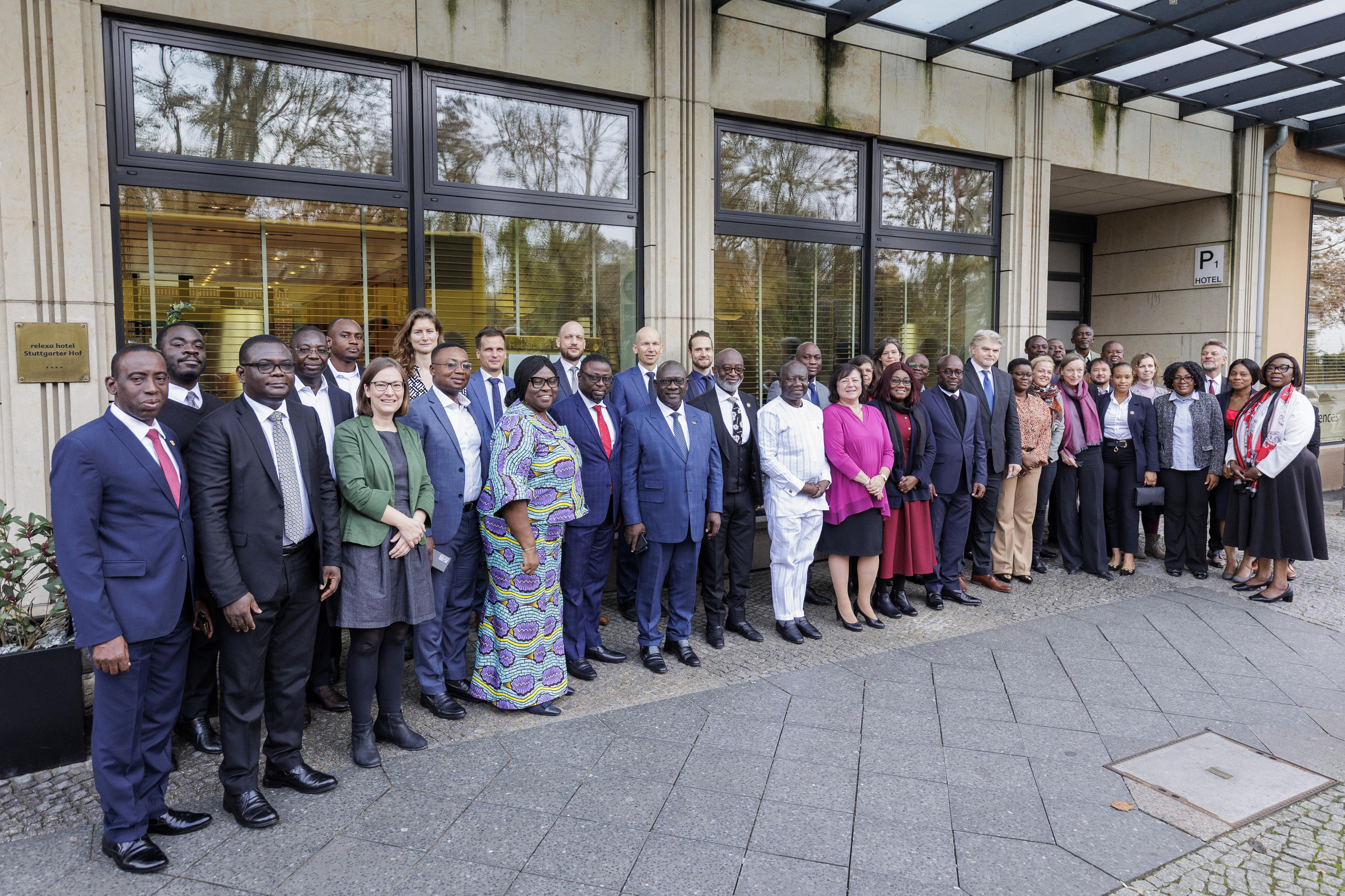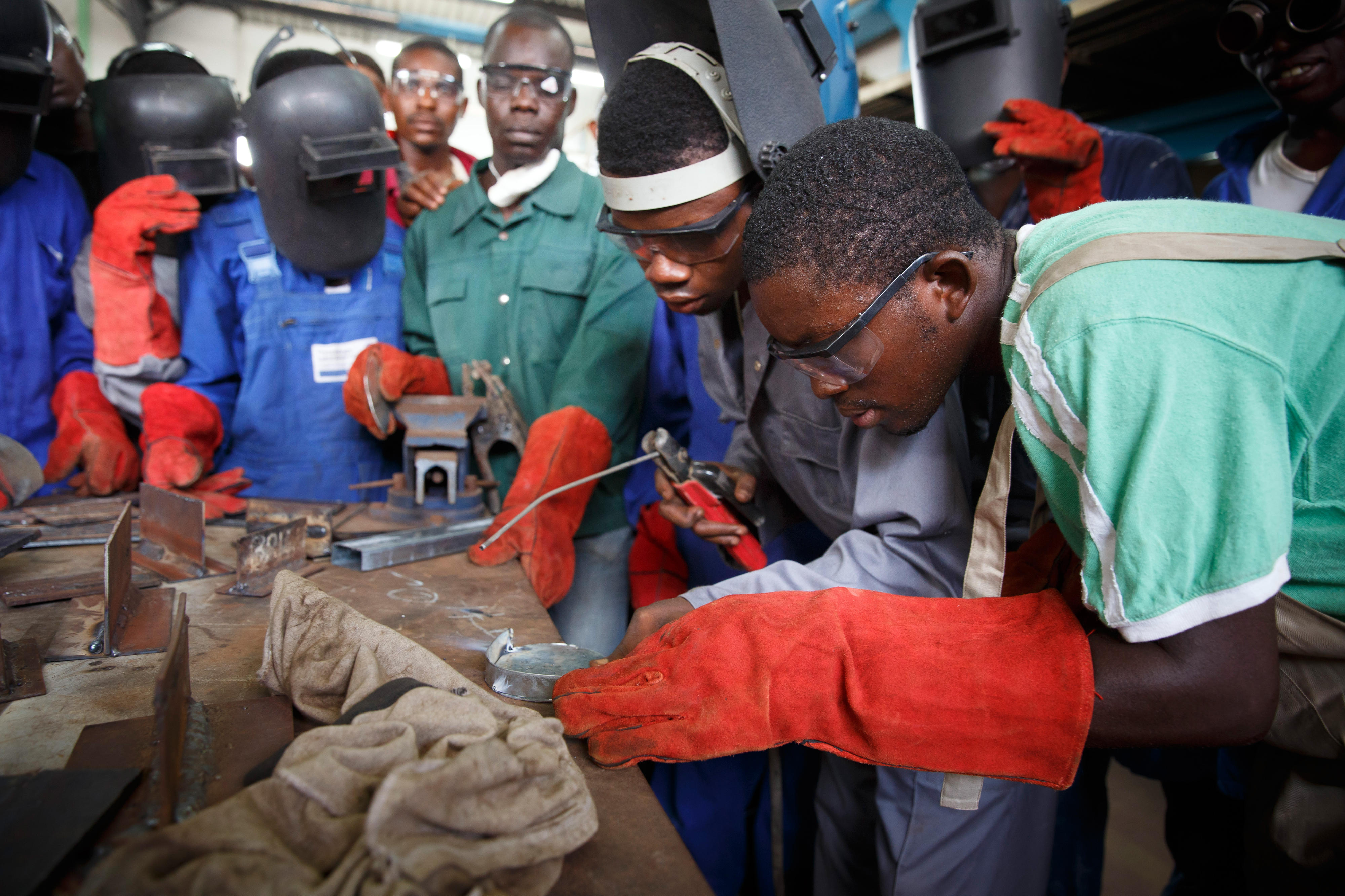Group photo of the participants in the German-Ghanaian government negotiations in November 2022
Copyright© Kira Hofmann/photothek.de
Government negotiations Germany supports Ghana’s sustainable growth efforts
In addition to its heavy debt burden, Ghana is also battling with rapidly increasing inflation and high youth unemployment. Over 30 per cent of those aged between 15 and 25 are officially unemployed. Most jobs are provided by the informal sector, yet often under very precarious conditions. That is why Germany’s support is focused on creating new and good employment opportunities, securing existing jobs and improving the employment situation especially for women and young people. Some 50,000 employees – more than half of them women – have been able to improve their employment situation with Germany’s support by tapping additional sources of income or benefiting from social protection.
The BMZ will also be providing more support for the expansion and modernisation of vocational education and training in a way that helps to align vocational skills more effectively with the needs of the private sector. Private companies are to be involved more strongly in vocational education and training. That applies in particular to micro, small and medium enterprises (MSMEs). They account for 98 per cent of the companies in Ghana. In the past two years, more than 3,670 Ghanaian entrepreneurs, more than half of them women, were able to benefit from training courses, for instance on marketing products digitally or on product development. Germany will also be supporting Ghana’s efforts to further digitalise the economy. A special focus will be put on women-led MSMEs. Plans are to also develop financial services for women-led companies in order to foster their stability.
Both in vocational education and training and in MSME promotion a focus is on creating green jobs. Germany is, for instance, helping Ghana with the installation of solar systems. In addition to jobs, these systems can provide climate-friendly, affordable energy year-round. Germany has also committed a project to promote innovative floating solar technology. This involves installing floating solar panels on reservoirs which is a way of using water surfaces so that less ground is being sealed.

